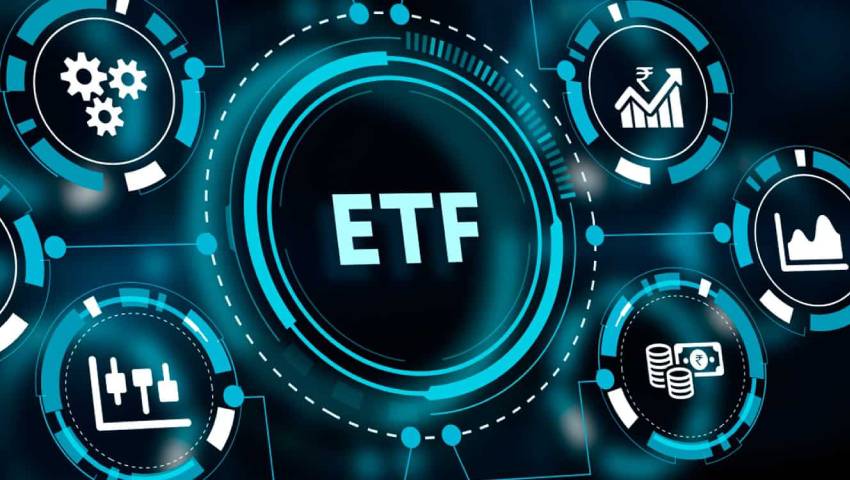
- 01/10/2024
- MyFinanceGyan
- 136 Views
- 4 Likes
- ETF, Investment
Exchange Traded Funds (ETF)
What is ETF?
An ETF is a basket of stocks that reflects the composition of an Index, like the Sensex or the Nifty. ETF prices reflect the net asset value of basket of stocks in which it is investing. In many ways, it is similar to mutual funds. Exchange Traded Funds (ETFs) are actually Index Funds that are listed and traded on exchanges like stocks and are passively managed. Mutual funds aim to generate alpha by outperforming a market benchmark, whereas ETFs aim to track the relevant index and replicate it returns. To invest in ETFs, you need to have demat and trading account with a stock broker.
How to select ETFs?
There are mainly three parameters which investors should look at while investing in ETFs: –
- Total Expense Ratio: Low risk (arbitrage theoretically means risk free profits)
- Tracking error: Tracking error is the deviation between index return and the ETF return. This is an important performance parameter because as an investor you are actually investing in the index.
- Liquidity: This is an extremely important factor for ETFs because unlike mutual funds, ETFs are bought and sold in the stock exchanges. If an ETF is not very liquid, you may not find enough buyers when you want to sell your ETFs.
ETF Schemes:
Some of the popular ETF category schemes are as follows: –
- Index ETF: Index ETFs are the most common of all ETF product offerings. It aims to track a particular market index like Sensex, Nifty, BSE 100, Nifty 100 etc. Index ETFs invest in a basket of stocks which replicate the Index the ETF aims to track. When investing in an Index ETF you should expect to get the index returns which your ETF is tracking, nothing more or nothing less.
- Gold ETF: Investors can buy gold as financial asset in the form of Gold ETF. Gold ETF is an exchange traded fund that aims to track the price of gold in the market and has the same value as that of pure 24 carat physical gold. Like shares of a company, the units of the Gold ETFs are also traded on the stock exchange.
- Bank ETF: Bank ETFs invests in a basket of banking stocks listed on the stock exchanges.
- International ETFs: An International ETF invests mainly in foreign based securities. These ETFs may track global markets or track a country-specific benchmark index. These ETFs can be a good investment option if you want to diversify your investments into foreign securities.
- Liquid ETF: Liquid ETFs invest in a basket of short term Government securities, call money or money market instruments of short term maturities. The objective of liquid ETFs is to enhance returns and reduce price risk.
Why invest in ETFs?
There are a number of factors that play a crucial role in determining future performance of a mutual fund scheme, for example – fund manager’s track record, AMC track record, long term performance etc. It takes considerable skills to identify a good fund that may outperform its peers and also the market in the future. Exchange Traded Funds, on the other hand, tracks only the Index that it is benchmarking and therefore, there is little scope of outperformance or underperformance. If you aim for market/ Index returns for your investment, the ETFs may be a good choice.
- Performance is the focus: The indices, which by their method of construction based on market capitalization, eliminate or at least, reduce the weight of underperformers in the index portfolio. Therefore, by extension ETFs also eliminate or at least reduce the weight of underperformers in their portfolio.
- Unsystematic Risk: Mutual funds are subject to two kinds of risk – Systematic and Unsystematic risks. Systematic risk is unavoidable because equities as an asset class are volatile. Both ETFs and actively managed funds are subject to market risks. Unsystematic risk is company specific risk or sector specific risk. Though mutual funds aim to reduce unsystematic risk by diversifying its portfolio across stocks and sectors, they still have some residual unsystematic risks because actively managed funds may be over-weight on certain stocks and sectors versus the index. Exchange Traded Funds do not have any unsystematic risk because they simply track the index; therefore, it is a good investment option if you want to totally avoid unsystematic risk.
- Low cost: The expense ratio of ETFs is much lower than their mutual fund counterparts. The expense ratios of ETFs can be as low as 0.25%, compared to the expense ratio of mutual funds which are usually in the range of 0.5% – 2.25%. Unless the mutual funds generate considerable alpha in the long term, they may not be able to beat the ETF returns in the long term.
- Simplicity: ETFs bring simplicity to your investing compared to actively managed funds. You do not have to analyze past performance or understand the fund manager’s investment style or how the fund has done in up and down markets etc. Most ETFs track the large cap indices like Nifty, Sensex, BSE – 100, Nifty 100, Nifty Next 50 etc. You can simply select an index and invest in a low-cost ETF, which tracks that index and your job is done.
Please note,
The views in the article/blog are personal and that of the author. The idea is to create awareness and for educational purpose and not intended to provide any product recommendations.



